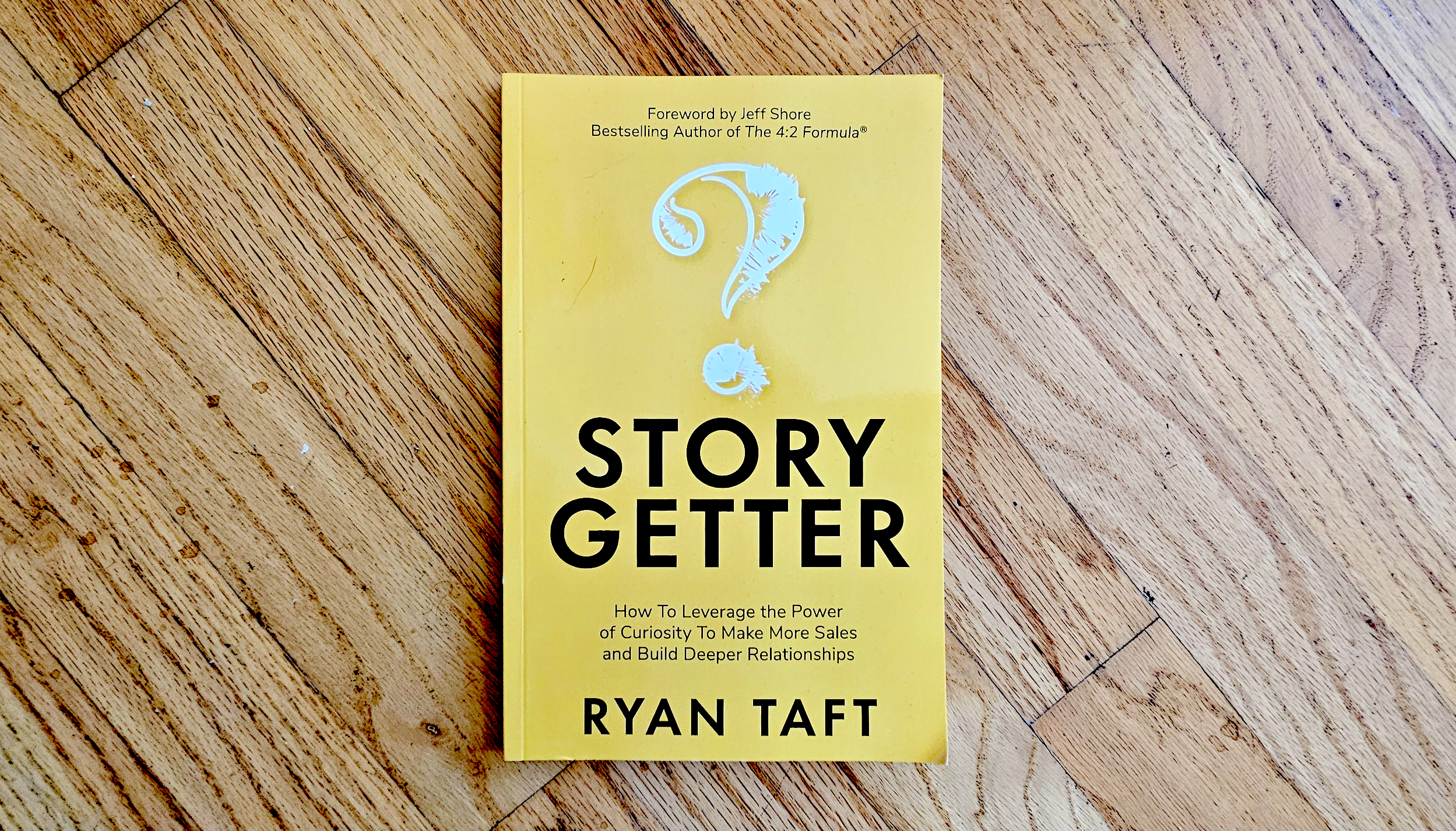|
Rick Heaston
|
Ever hear of Harry Beckwith? Maybe you've read one of his books, Selling the Invisible and The Invisible Touch, or listened to one of them on tape. Harry tells great stories. One particular story illustrates sales myopia, or the inability of people to understand or deal with the obvious. Beckwith describes a friend's experience with corporate myopia:
"You meet with the president and have a nice meeting. On the way out, you notice his fly is down. You decide to say nothing and move on to the director of sales. You notice his fly is down, too.
"You move on to your next meeting with Joan in purchasing and have another productive meeting. But when you get up to leave, you notice Joan's fly is down, too!
"You go home, draft your report and return to deliver it. You open by saying, 'Ladies and gentlemen, this company has a fly problem.'
"Everyone is stunned. 'How did he figure that out?' they wonder. It comes across as a brilliant insight.
"So much of what passes as brilliant insight is reporting what everyone could see if only they would open their eyes and see clearly."
Are you seeing clearly, or is your fly down? Are you aware that most builders leave money on the table? Do you know your company has a profit center you might not have thought about? It's your sales department. Most builders view sales as an expense instead of an area to generate profits.
There's a huge difference in how customers shop for high-priced products such as a home compared with how they shop for lower-priced products such as an expensive sweater. If shopping for high-ticket goods is different, then selling such items must be different, too.
Still not sure? What if I said most builders train their people to sell clothes, personal digital assistants and cell phones, not homes? And that by matching their selling process to their customers' buying process, they would increase sales by as much as 300% to 400%?
Home builders of America, your fly is down.
A Second Sales Method
Selling has existed for centuries, but the selling model changed little until the mid-1980s, when Huthwaite Inc. research proved that the sales process everyone used, regardless of product, had a parallel process. The findings were based not only on how sellers sold but also on how customers shopped and made decisions.
Huthwaite founder Neil Rackham found that selling is divided into two parts, each very different from the other. He proved that one sales process sold low-ticket products effectively and another was effective with high-ticket products. One size no longer fit all.
Rackham also discovered that all salespeople, no matter what they sold, were using the method suited for low-ticket products, the same method builders still use and trainers still teach to sell new homes.
If you don't believe that, ask your favorite sales trainers if they use high-ticket strategies in their program. I'll bet they roll their eyes and say, "That's nothing new. My program covers that. Been doing it that way for years." They don't and never have.
Does it make sense for 90% of an industry to ignore a selling process that's proven and perfect for their product? Why do so many builders resist change?
The Three Deadly Sins
Most psychologists agree: Study people's behavior, and you'll stand a good chance of predicting how they'll behave in the future. Most builders, managers and sales trainers behave very predictably, especially when introduced to new information. Their behaviors boil down to the three deadly sins: ego, vanity and indifference.
When you're introduced to a new process, does your ego cause you to claim, "I already do it that way, and I've been doing it that way for years"? It's an easy way to get the topic off the table and protect your position.
Maybe vanity prompts you to declare, "There's nothing wrong with the way I do things now. We just need to work harder at what we do. Closing, we'll work harder on closing." And maybe you're secretly saying to yourself, "If I work on closing, I'll keep everyone happy."
Indifference can make you say, "It's impossible to change now. It would cause too many problems." But you're really thinking, "It would be too hard to change. Besides, there's nothing wrong with my way."
Sales myopia starts with business focus. You're busier than ever these days, with dozens of worries. If it isn't mold, it's insurance. If it isn't insurance, it's finding more land. Who can blame you if you don't have time to stay current on selling? But consider the following:
- During the past five years, have you spent more time on your sales process or your production, service and partnering processes?
- Do your managers spend more time in the field coaching or in the office moving mounds of paper and putting out fires?
- Do you hire experienced salespeople so you can put them on site and forget about them, or do you spend two-thirds of your time developing and coaching people, as Jack Welch suggests?
What Most Builders Don't Want to Hear
Qualifying questions, the ones you're taught to use when someone arrives, foster distrust. If you ask more than two or three qualifying questions in a row, you create a customer who's irritated instead of happy to be there. In addition, qualifying questions reduce rapport rather than increase it.
If you present features and benefits early in a customer's visit, you create a price-sensitive buyer. If you present them in the wrong way, you create customer objections rather than value in your product.
Just because closing five times works in a small sale doesn't mean it works in a large sale. The more often you close in a large sale, the less chance you have of making the sale. It's how you close, not how often, that increases sales success.
'Thinking It Over'
Anything that feels risky feels dangerous. If doing something feels dangerous, most people quit doing it. When customers "quit" because the risk feels too high, they quit the shopping and buying process. You see evidence of this whenever they say, "We need to think it over."
Customers "think things over" because they're overwhelmed with features, benefits and choices. They're simply confused, and no one wants to make a major decision unless everything makes sense.
How would you feel if you were trying to buy something that costs thousands of dollars, you had possibility after possibility from which to choose, and each choice offered things you like? Would you want the salesperson to pressure you for a decision or to help you organize your thoughts and make the right decision? Which approach would add value for you?
Selling today is all about eliminating customers' perception of risk.
Can I Have a Cookie?
Think back to when you were little, maybe 5 or 6 years old, and your mom had baked cookies. You asked for a cookie, and she said, "No, it'll spoil your dinner." Did you give up? No, now it was a challenge. You asked again, "Please, just one cookie." You kept asking until she couldn't stand the sight of you and finally gave you a cookie.
You learned that the more you asked, the more you got what you wanted. The more you got what you wanted, the more you asked. You were learning how to sell! It was easier for your mom to give you a cookie than to argue. Besides, it was a low-risk decision for her: A cookie might ruin your appetite but not the rest of your life.
Success gave you more confidence. You applied "ask more, get more" to bigger and better things: a better grade, a date or maybe the use of your dad's car. You used your new skill to get bigger and better prizes: "Your place or mine?"
"Why not?" you thought. "It worked before, so it has to work this time, too." Like before, you didn't stop asking when you got a "no." But this time the risk was too high for the recipient of your new closing technique. This time you lost the sale and created someone who didn't like you very much.
Did you connect the dots? Did you notice that your technique had worked well when the outcome of the decision wasn't risky to the "buyer" but not when the buyer had a big stake in the outcome?
Most of us grew up asking until we got what we wanted. We instinctively believe in its merits, so we apply it to selling. Asking for the sale is the last thing we do before we get our reward, so it's the technique we most closely associate with success. But it's what happens before the close that makes for a successful close. Look at your best closers and you'll see that they're efficient before closing, not at closing.
It boils down to one question: Are you going to ignore the research or move to the next level in selling?
Rick Heaston, president of R.A. Heaston and Company, is recognized as the industry's leading expert on "high-risk" selling. He provides workshops for builders across the United States and Canada. You can reach him by email at rheaston@touchpointselling.com.
Related Stories
Custom Builder
Start With the Why: Fundamentals of the Custom Builder Business
In our inaugural episode of Taking Care of Business, host and custom builder Duane Johns sits down with Scott Beebe, head coach and founder of My Business on Purpose, to talk vision, purpose, mission, values, and more
Business
Why AI Is Now Key to Our Trade Partner Strategy
Thompson Custom Homes Business Manager Erin Day explains how AI became a crucial part of building and maintaining successful trade partner relationships
Business
Thriving in 2024: Tips for Succeeding in an Uncertain Environment
Author and sales expert Mark Richardson shares his insights on the industry and how to rethink your approach to success in the new year
Custom Builder
Understanding Your Biggest Competitor
You may not think of yourself as a tour guide, therapist, doctor, marriage counselor, or investment advisor. But those are the skills custom builders need in today's market
Business
Entries Closing Soon for Best in American Living Awards
Custom builders have only one week left to submit their projects for recognition
Custom Builder
The Power of Stories
At the 2023 Jeff Shore Sales and Marketing Summit, we sat down with author, speaker, trainer, and home building sales expert Ryan Taft to explore his thoughts on storytelling, including its role in successful sales and relationship building
Business
Guest Column: What I'm Seeing Out There
Industry expert and advisor Mark Richardson shares stories from the field, from what's changing to what's working
Custom Builder
In Business: Modern Design, Compromise, and Money
Custom builder Zane Williams opens up about what it takes to maintain his architectural vision, from handling clients and staying true to his fluid style, to the importance of transparency and how a slush fund avoids awkward conversations mid-construction
Custom Builder
Five Key Spokes of the Business Bike Wheel
Much like a bike wheel depends on its spokes to work effectively, a business depends on its various departments to find success in the market.
Custom Builder
Custom Home Building Gets Good News
New data from NAHB shows that while much of the market is in contraction, custom home building continues to gain strength












